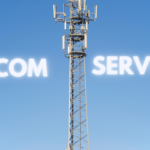Top Considerations for Selecting a Network Security Solution
Selecting a network security solution is a critical task for any organization. With cyber threats evolving rapidly, it’s essential to choose a solution that not only fits your current needs but also scales with your future requirements. When selecting a network security solution, there are several key factors to consider. Let’s explore these considerations in detail to ensure you make an informed decision.
Understanding Your Needs
Before going into the specifics of various solutions, it’s important to understand your organization’s unique needs. This means assessing your network’s size, the type of data you handle, and your specific security concerns. Are you more worried about external attacks or internal threats? Do you need a solution that integrates with existing tools or a standalone system? Understanding your requirements will help narrow down your options and ensure you select a network security solution that effectively addresses your concerns.

Scalability and Flexibility
One of the most important aspects of selecting a network security solution is scalability. Your organization’s network may grow, and so should your security system. Choose a solution that can scale with your growth, whether that means handling more devices, increased data traffic, or more complex security protocols. Flexibility is also key—ensuring the solution can adapt to new technologies and changing security threats.
Ease of Integration
When selecting a network security solution, consider how easily it integrates with your current systems. An ideal solution should seamlessly fit into your existing infrastructure without causing disruptions. Compatibility with other tools, such as your firewall, antivirus, and intrusion detection systems, is crucial. Smooth integration helps in maintaining a cohesive security environment and avoids operational inefficiencies.
Cost-Effectiveness
Cost is always a significant factor when selecting a network security solution. However, it’s important to consider not just the initial cost but also the long-term value. Cheaper solutions might seem attractive but could end up costing more if they lack essential features or require frequent updates. Look for a solution that offers a good balance between cost and functionality. Evaluate the total cost of ownership, including maintenance and potential upgrade costs.
User-Friendliness
The user interface and overall ease of use are important when selecting a network security solution. A solution that is difficult to navigate or requires extensive training can lead to inefficiencies and errors. Choose a solution with a user-friendly interface that simplifies management and monitoring tasks. This can save time and reduce the likelihood of security oversights.
Compliance and Regulations
Depending on your industry, you may need to comply with specific regulations and standards, such as GDPR, HIPAA, or PCI DSS. Ensure that the network security solution you select supports these compliance requirements. This will help you avoid legal issues and potential fines, as well as protect sensitive data.
Support and Maintenance
A robust support system is crucial for any network security solution. Evaluate the support options provided by the vendor, including technical support, updates, and maintenance services. Reliable and accessible support can make a significant difference in handling issues promptly and ensuring the continued effectiveness of your security solution.
Performance and Reliability
The performance of your network security solution directly affects your network’s overall efficiency. Look for a solution that offers high performance without causing network slowdowns or interruptions. Reliability is also key—ensure the solution has a track record of uptime and consistent protection against threats.
Vendor Reputation
Research the reputation of the vendors you are considering. Look for reviews, case studies, and customer feedback to gauge the effectiveness of their solutions. A vendor with a strong reputation is likely to provide a reliable and effective network security solution.
Advanced Features
Consider the advanced features offered by different network security solutions. Features such as real-time threat detection, automated responses, and comprehensive reporting can enhance your security posture. Evaluate which features are essential for your organization and ensure the solution you choose includes them.
Customization Options
Different organizations have different security needs. Choose a solution that allows for customization based on your specific requirements. Whether you need to adjust security policies, set up custom alerts, or configure specific protection levels, having a solution that offers customization can help tailor your security to fit your needs.
Deployment Options
Network security solutions can be deployed in various ways: on-premises, in the cloud, or as a hybrid solution. Consider which deployment method aligns best with your organization’s infrastructure and security strategy. Each method has its advantages and limitations, so choose the one that best fits your needs.
Security Updates and Patches
Ensure that the network security solution you select provides regular updates and patches. Cyber threats evolve continuously, and timely updates are essential to protect against new vulnerabilities. A solution that keeps up with the latest threats will help maintain your network’s security.
Ease of Management
The management of the network security solution should be straightforward. Look for solutions that offer centralized management dashboards and intuitive controls. This will simplify monitoring and managing your security efforts, making it easier to maintain a secure network environment.
Conclusion
Selecting a network security solution requires careful consideration of various factors. By understanding your needs, evaluating scalability, integration, and cost, and assessing other key aspects such as compliance, support, and performance, you can make an informed decision. Choosing the right solution will help safeguard your network against threats and ensure long-term security and efficiency.


